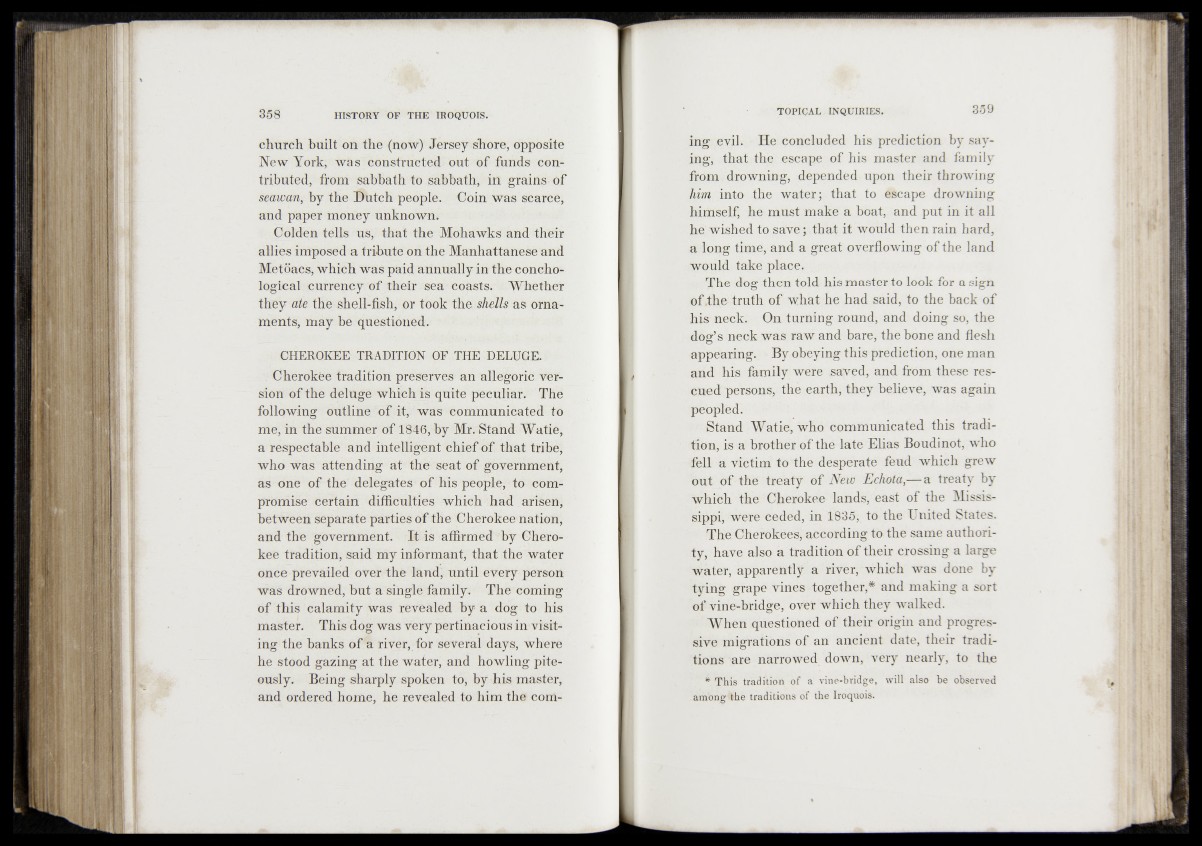
church built on the (now) Jersey shore, opposite
New York, was constructed out of funds contributed,
from sabbath to sabbath, in, grains of
seawan, by the Dutch people. Coin was scarce,
and paper money unknown;
Golden tells us, that the Mohawks and their
allies imposed a tribute on the Manhattanese and
Metbacs, which was paid annually in the concho-
logical currency of their Sea coasts. Whether
they ate the shell-fish, or took the shells as ornaments,
may be questioned.
CHEROKEE TRADITION OF THE DELETE.
Cherokee tradition preserves an allegoric version
of the deluge whichJS quite peculiar. The
following outline/of it, was communicated to
me, in the summer of 1846, by Mr. Stand Watie,
a respectable and intelligent chief Of that tribe -
who was attending at the seat of government,
as one of the delegates'of his people,-to compromise
certain difficulties which had arisen,
between separate parties of the Cherokeenation,
and the government. It is affirmed 'by Cherokee
tradition, said my informant, that the Water
once prevailed over the land, until every person
was drowned, but a single family. The coming
of this calamity was revealed by a dog to his
master. This dog was very pertinacious in visiting
the banks of a river, for several days, where
he stood gazing at the water, and howling piteously.
Being sharply spoken to, by his master,
and ordered home, he revealed to him the coming
evil. He concluded his prediction by saying,;
that the escape of his master and family
from drowning, depended upon their throwing
him into the water; that to escape drowning
himself, he must make a boat, and put in it all
he wished to save; that it would then rain hard,
a long time, and a great overflowing of the land
would take place.
The dog then told his master to look for a sign
of .the truth of what he had said, to the back of
his neck. Qn turning round, and doing so, the
dog’s neok was raw and bare, the bone and flesh
appearing. i By obeying this prediction, one man
and his family were .saved, and from these rescued
persons, the earth, they believe, was again
peopled.
• Stand Watie, who communicated this tradition,
is a brother of the late Elias Boudinot, who
fell a victim to the desperate feud which grew
out of the treaty of New Echota,—a treaty by
which the Cherokee lands, east of the Mississippi,
were ceded, in 1835, to the United States.
The Cherchées, according to the same authority,
have also a tradition of their crossing a large
water; apparently a river, which was done by
tying grape vines together,* and making a sort
of vine'-bridge, over which they walked.
When questioned of their origin and progressive
migrations of an ancient date, their traditions
are narrowed down, very nearly, to the
* This tradition of a vine-bridge, will also be observed
am'ong&he traditions of the Iroquois.